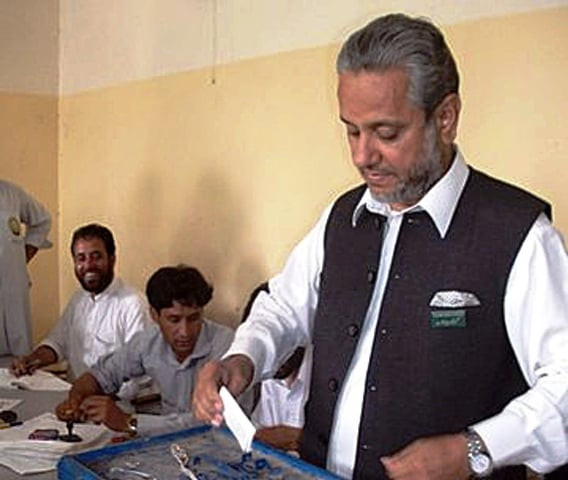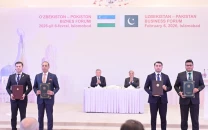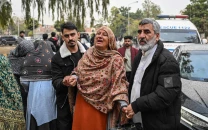AJK elections: Muslim Conference may quit over rigging allegation
Sardar Attique criticises PPP but does not rule out reconciliation with the party.

AJK elections: Muslim Conference may quit over rigging allegation
Marred by allegations of massive rigging, the June 25 elections of Azad Jammu and Kashmir (AJK) Legislative Assembly have not only turned friends into foes in Islamabad, but the Muslim Conference (MC) of Prime Minister Sardar Attique Ahmed Khan is also considering resigning from the few seats it could secure.
“We are being pushed against the wall in the name of reconciliation,” Khan said in an interview to The Express Tribune on the Pakistan Peoples Party-led government’s contacts with the Muslim Conference on forming a government in Azad Jammu and Kashmir.
Elections in the AJK are conducted by the sitting government. The Muslim Conference has mostly ruled AJK since 1948. During this time, four prime ministers have changed in the assembly which will complete its tenure on July 23rd. Khan is in his second term as prime minister of the outgoing assembly after once voted out through a no-trust move.
“The question of whether we sit in the next assembly depends on the acceptance of our demands: A serving judge should be appointed as Chief Election Commissioner (CEC) for the eight constituencies and there should be recounting of votes in some constituencies with disputed results under the supervision of the army,” he said adding that it would give his party some reason to sit in the assembly, otherwise it will be left with no option but to resign from the three seats it has secured.
Once the Muslim Conference submits its resignations, the after effects will be felt in Pakistan, Khan said, warning that three governments in Islamabad - in 1975, 1990 and 1996 were set packing after they were seen to have rigged the AJK elections.
The outgoing prime minister said he had brought the anomalies well ahead of the elections into the notice of the Pakistan government, but nothing was done. “I had formally informed the government regarding discrepancies in the election process,” he said.
Khan added that he had sent similar letters to “DG Inter-Services Intelligence (ISI) and all relevant quarters.”
“The incumbent chief election commissioner is an incompetent person and whose own vote was enrolled thrice in the electoral list,” he said. Khan, who until recently had cordial relations with the PPP, claimed that the federal government had appointed the election commissioner without consulting him. Khan praised General Musharraf’s regime for holding peaceful elections in 2006 when his party came to power for the second consecutive term.
When asked for comments about the participation of two mainstream political parties (PPP and PML-N) in the Kashmir elections, he said “it has severely damaged the Kashmir cause and the official stance.” It was for the first time that the PML-N took part in the AJK elections under its own separate chapter and secured around 9 seats. Most of the PML-N candidates were former members of the Muslim Conference, he said.
“The Muslim Conference had been representing Kashmiris since 1931 and had given the charter for union with Pakistan. It reflects the voice of Kashmiris,” he said, calling the PPP and PML-N “non state parties”.
The premier said that the ruling party had stabbed the Kashmiris in the past by the Simla accord which turned the Kashmir issue into a regional dispute, converted the “UN ceasefire line” into the Line of Control (LoC).
“Zulfikar Ali Bhutto wanted to make Kashmir a province, which has been acknowledged by PM Gilani in a recent election campaign,” he added.
On the powers of the Kashmir Council, which practically controls the affairs of the state, Khan said he has severe reservations on the council’s role and termed it a “system within the system”.
The prime minister said defence and foreign affairs along with issues of currency should remain under the federal government, while other subjects should be dealt by Kashmiris.
“Pakistan has nothing to do with hydel affairs. This subject should be entirely controlled by Kashmir,” he said.
When asked about resumption of talks between India and Pakistan and the upcoming meeting between foreign ministers from both sides, he said: “We should not keep high hopes, but the process should continue,” he said.
Published in The Express Tribune, July 11th, 2011.


















COMMENTS
Comments are moderated and generally will be posted if they are on-topic and not abusive.
For more information, please see our Comments FAQ